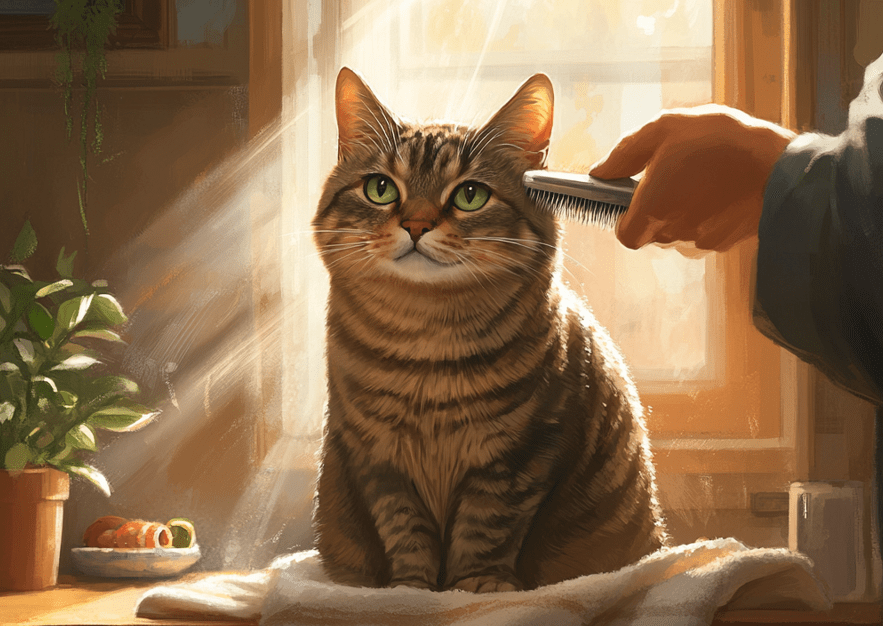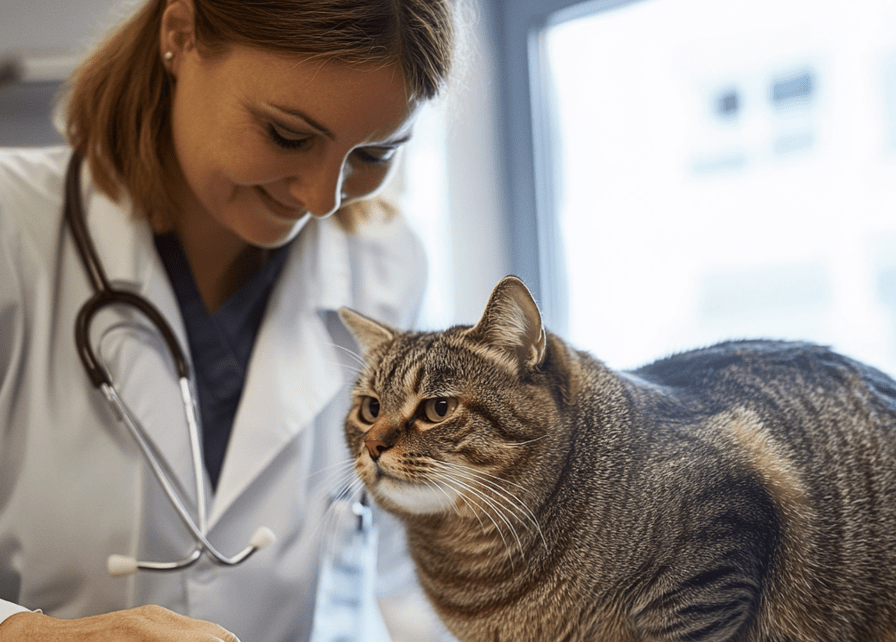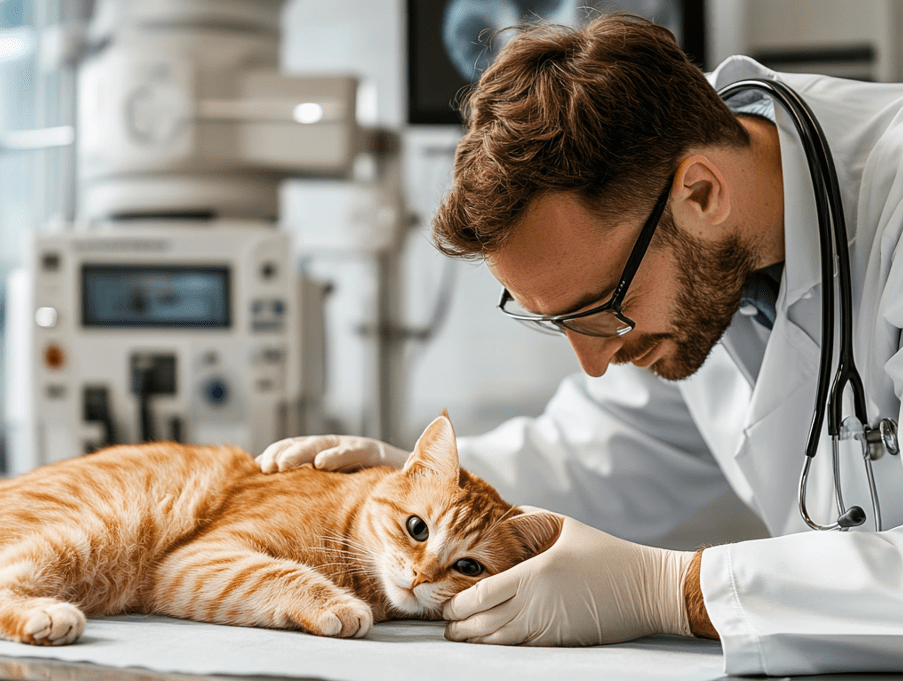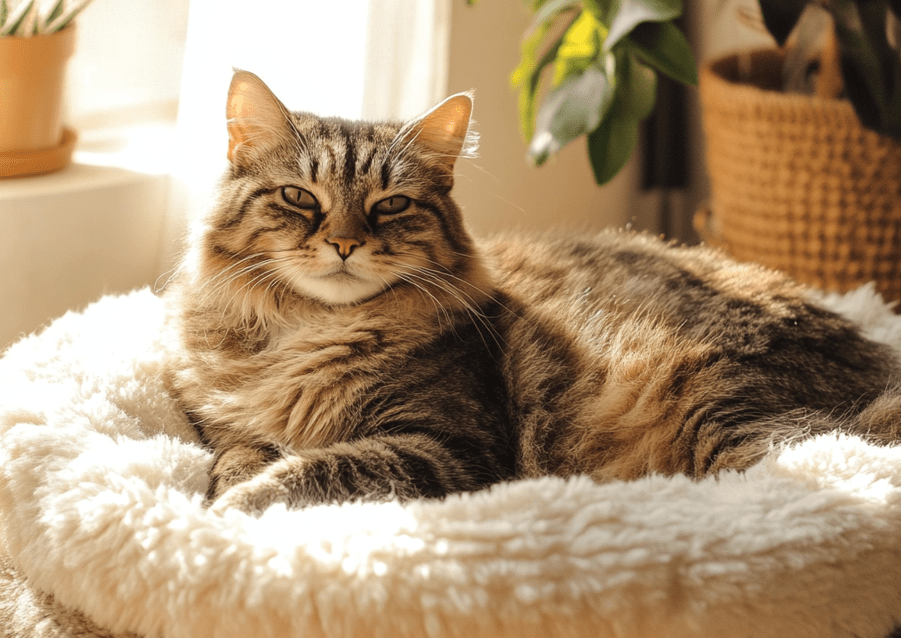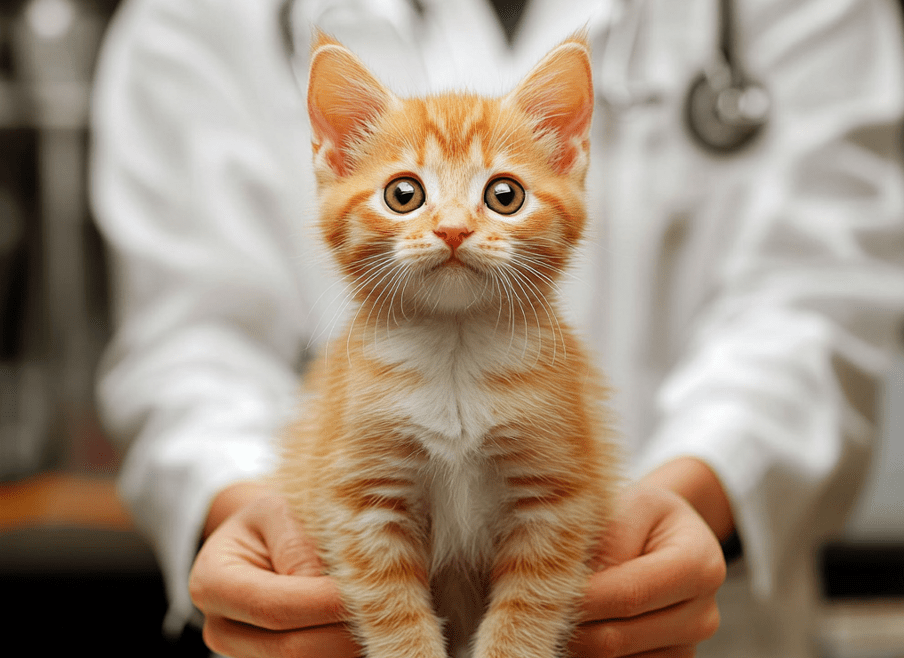
Vaccinations form one of the cardinal duties of every pet owner; hence, being a responsible pet owner entails pet vaccination. In a kitten’s early age, the crucial period that directly affects his/her immune system is less than half a year. Vaccines help your kitten avoid several diseases that are either fatal or very infectious, giving them a healthy start to life as an adult cat. Making vaccination schedules for kittens is essential for properly caring for your kitten. In this guide, you will learn about kittens’ vaccinations, how and why vaccinations are crucial, and how to immunize your kitten successfully.
To watch the summary of this article, just watch this video-
The Relevance of Vaccine in Kittens
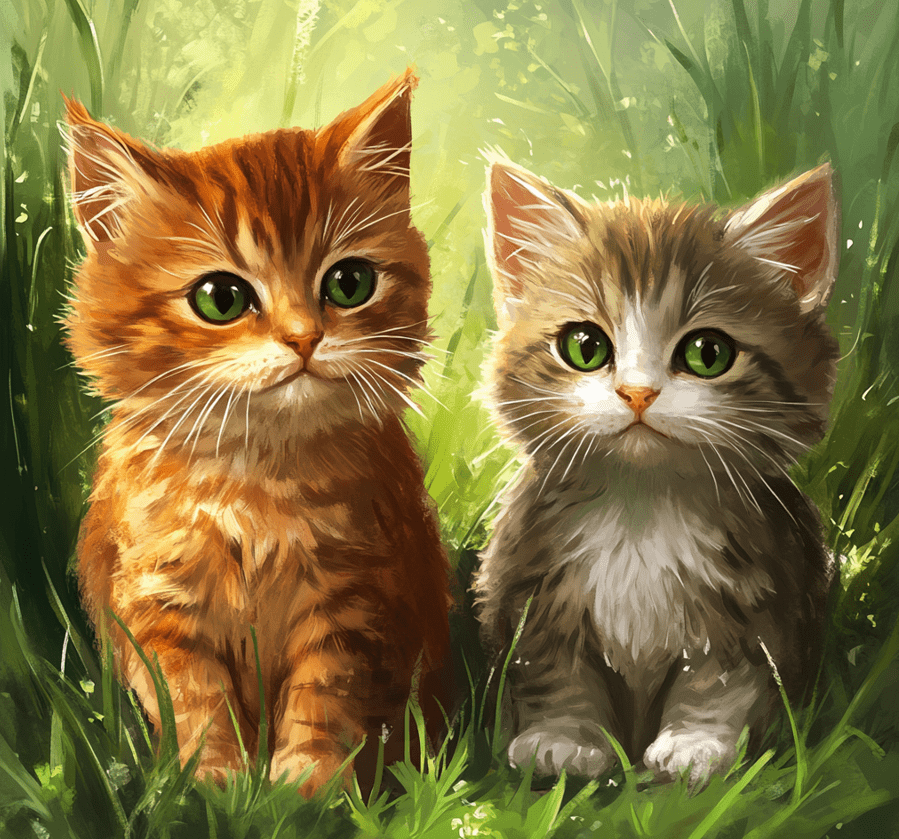
The immune system of kittens mainly depends on vaccination as a protection against deadly and health-affecting diseases. Early vaccination assists in building up immunity in the infant so that at some point in future their body can counter them on its own. If not vaccinated kittens can easily catch diseases such as Feline Distemper (Panleukopenia), Feline Leukemia (FeLV), and Rabies, which are often deadly.
Newborn kittens have some immunity from the colostral meal obtained from their mother but this immunity usually diminishes with time. The receiving of immunizations is specifically pivotal during this period characterized as a period of vulnerability. Furthermore, vaccines ensure that other cats in your home, or the community, do not contract a disease and hence prevent the spread of an illness and subsequent outbreaks of the same among cats.
Core vs. Non-Core Vaccines
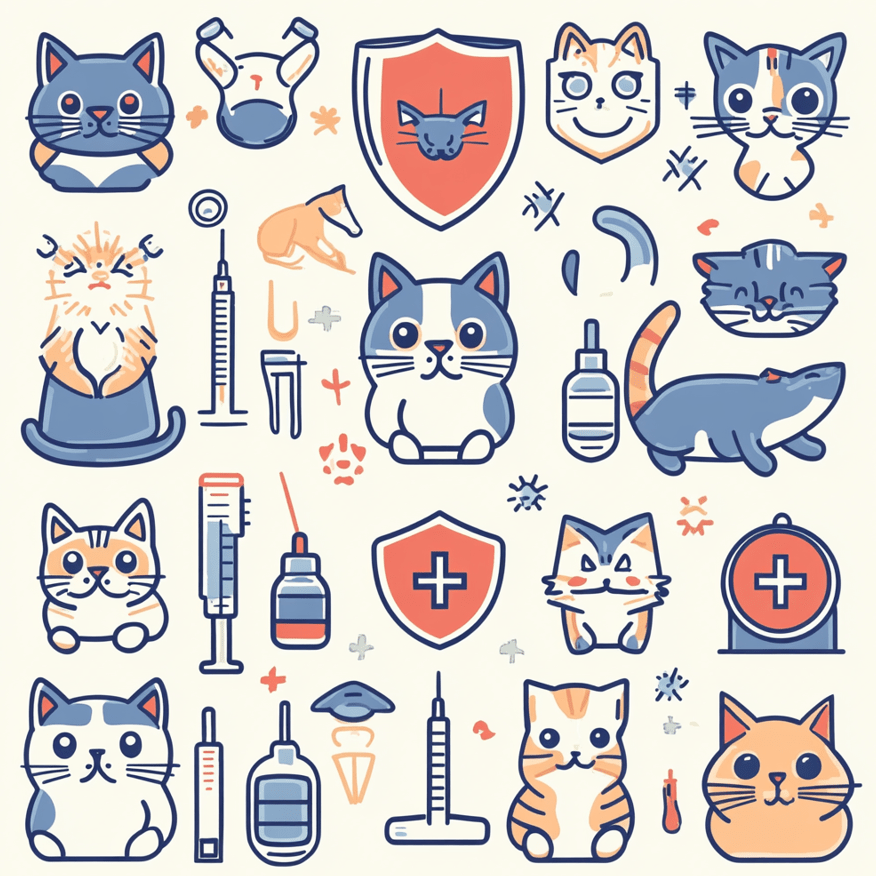
Feline immunization regimens typically include core and non-core categories of vaccines. It would, therefore, be useful to understand the differences between the two to afford your kitten the right protection.
Core Vaccines
These vaccines are very important basically for all kittens without exception for any kind of lifestyle. Core vaccines are those that guard against diseases that are common, easily transmittable, and mostly deadly.
1.FVRCP Vaccine (FVR – Feline Viral Rhinotracheitis Calicivirus, Panleukopenia)
FVR or Feline Viral Rhinotracheitis and Calicivirus are responsible for this and are common amongst cats. Signs are sneezing, nasal discharge, and conjunctivitis which is an inflammation of the eye. They don’t cause death directly but can result in respiratory diseases of a chronic nature.
Feline distemper or panleukopenia is a viral illness characterized by Gastroenteritis, vomiting, diarrhea, and lowered immunity. This disease is known to affect kittens most especially.
2.Rabies Vaccine
Rabies is an acute viral encephalitis which with rare exception is always fatal. It is zoonotic and it is fatal if left untreated, and thus many jurisdictions mandate rabies vaccination. Even though cat rabies is comparatively low, this disease is very important in the vaccination of kittens.
Non-Core Vaccines
DistUniversity vaccines are suggested depending on kitten’s activity level and overall risk exposure factors. Of these vaccines, not all kitten may need each, but if the kitten is at risk of coming into contact with one or the other, the vaccines may be relevant.
1.Feline Leukemia Virus (FeLV) Vaccine
The disease is similar to FIV and is transmitted through saliva; it lowers a cat’s immunity to diseases and enhances vulnerability to carcinogens. It is transmitted through saliva, urine, and contact with infected cats. Kittens who may be exposed to the virus from outdoors or other cats should be vaccinated.
2.Feline Immunodeficiency Virus (FIV) Vaccine
Other experiment results indicate that FIV is an immunosuppressive virus-like its human analog, HIV. It’s transmitted mostly through contact with the saliva, through bites, so, outdoor or aggressive cats are more susceptible. This vaccine is uncommon since cats that need it are only those that will be placed in risky areas.
3.Chlamydia Vaccine
The biological causative agent of conjunctivitis and respiratory ailments is chlamydia. This vaccine is recommended mostly for cats living in homes with more than one cat or those engaged in the breeding of cats.
Kitten Vaccination: The Traditional Timetable
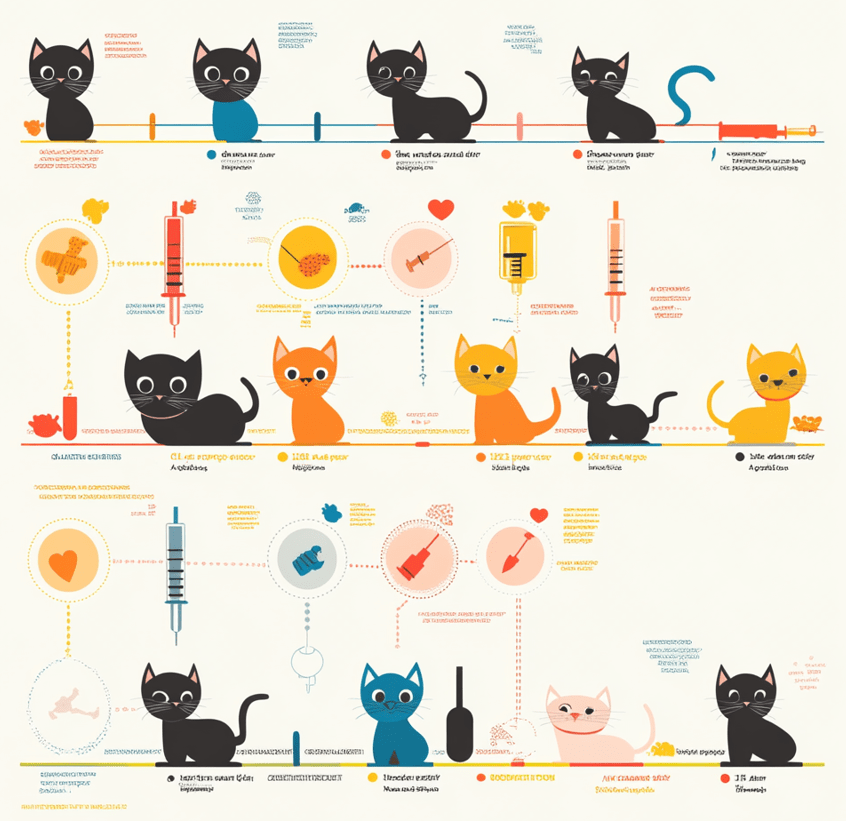
The first few months still play a vital role in building up the kitten’s immune system to protect him or her against diseases. What vaccination schedules are most suitable for kittens can be depicted as the way to provide them with the protection they need on one stage of their lives when they are still kittens.
Here is a typical vaccination timeline:
1.6-8 Weeks
FVRCP Vaccine (First dose): FVRCP is given in a series of shots, with the first dose given at 6-8 weeks. This first immunization sets up protection against respiratory diseases and panleukopenia.
FeLV Vaccine (optional): If the kitten is more likely to be exposed to FeLV (for instance, it has outdoor access, or lives with other cats) then the FeLV vaccine may be administered at this time.
2.10-12 Weeks
FVRCP Vaccine (Second dose): The FVRCP vaccination is administered in two doses with the second dose administered between 10- 12 weeks of age to increase the kitten’s immunity.
FeLV Vaccine (optional, second dose): If the first dose of the FeLV vaccine has been administered the second dose should be administered at this time.
3.12-16 Weeks
FVRCP Vaccine (Third dose): FVRCP vaccines are administered in a three-dose regimen, and the last booster is administered between 12 and 16 weeks to afford the cats complete protection against these viruses.
Rabies Vaccine: At 12-16 weeks Rabies vaccine is given initially. In law, this may be necessary because rabies is an infection that could spread in humans and other animals.
4.16-20 Weeks
FeLV Vaccine (Third dose): When your kitten gets the FeLV vaccine, the last vaccination is administered between 16 – 20 weeks old.
Booster Shots
After the initial kitten vaccination series, booster shots are required to maintain immunity:
- FVRCP Booster: For the FVRCP vaccine, your kitten needs a booster shot after one year of administration to continue to have the immunity. Subsequently, boosters are administered at a frequency of once about 1 – 3 years based on your veterinarian’s advice.
- Rabies Booster: The rabies vaccine is generally administered annually or at longest triennially depending on the type of vaccine used as well as the local state laws.
- FeLV Booster: If your kitten has been administered FeLV, your vet will advise if booster shots are necessary or annually for exposed cats.
Expectations That Vaccination Usually Comes With
At vaccination checkup time, your kitten will be given a shot below the skin, in the scruff of the neck area using a shallow needle that is disposable. Most kittens handle the vaccinations well, although they may experience mild side effects, including:
- Tiredness or fatigue for one or two days
- Painless enlargement of the subcutaneous tissue or formation of a small nodule at the site of injection.
- Mild fever
- Decrease or complete loss of appetite for a short time.
Most of these side effects are minor and clear on their own after some time. However, if signs of one of the worst reactions are observed, including swelling of the face or difficulty breathing, one should consult with their veterinarian.
Special Cases that May Lead to Amendments on the Schedule
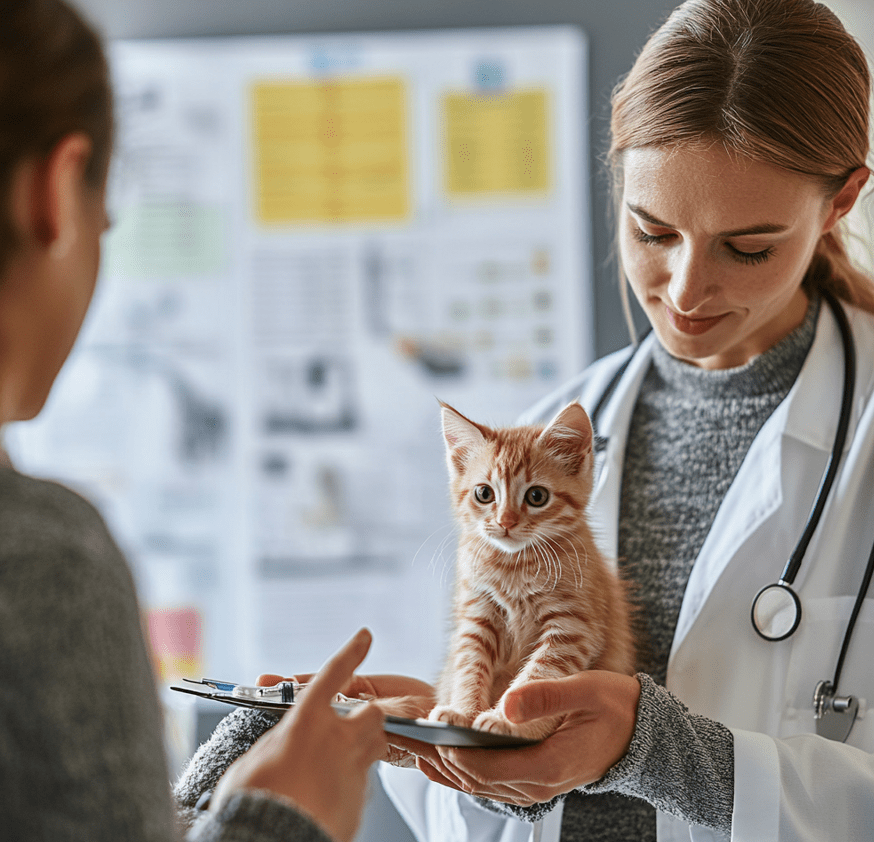
Therefore, not all kittens adhere to a set vaccination regime as the one described above. Several factors may cause a veterinarian to adjust the vaccination plan, such as:
- Kittens with compromised immune systems: If the kitten is immunocompromised, or has other health issues, the veterinarian will advise when and which vaccinations to administer.
- Kittens adopted at older ages: Kittens that are over eight weeks and have not been vaccinated will be administered with initial vaccinations of the series but may be adjusted depending on the overall age and health of the kitten.
- Indoor vs. outdoor cats: Early born kittens or those that come into contact with other cats will need more elaborate vaccinations and these will include FeLV and FIV vaccines.
Vaccination aftermath and observation
- When your kitten is through with vaccinations, observe them closely to confirm how they are doing. The majority of kittens have relatively minor side effects, which is why you should pay attention to them in case of severe allergic reactions or other abnormal reactions.
- If it looks like your kitten is unusually weak, is having a hard time breathing, or has puffiness beyond the site of the shot, talk to your vet.
- This means that one should always ensure that they have had their vaccination up to date. Always preserve all vaccination documents and cards for occasions, such as boarding, traveling, and proving vaccination cards for any purpose.
Conclusion
It is most recommended that your kitten be vaccinated to safeguard its health. Vaccination schedule prevents them from contracting diseases that may be fatal and build up their immunity as well. Make sure that the vaccination schedules have been recommended by your veterinarian and if you have any issues, do not hesitate to ask your vet. A sound kitten today will mean a sound cat tomorrow when it grows up to be an adult cat.
Call to Action
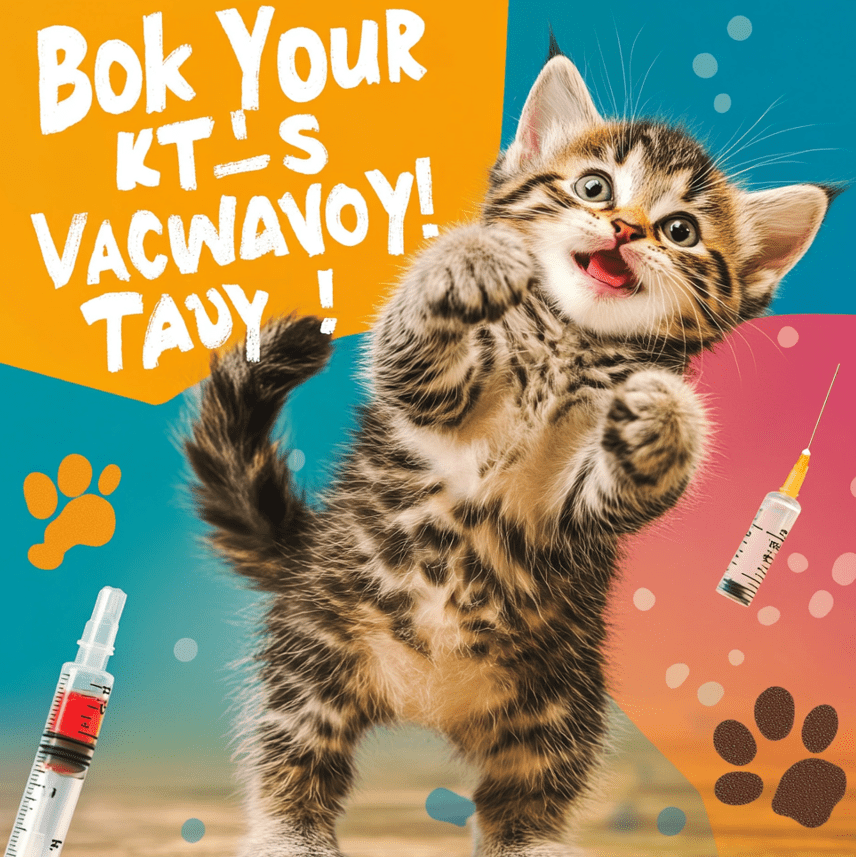
Do not hesitate, and book your kitten’s first vaccination session now. Being proactive about your kitten’s health will help ensure that your cat or kitten enjoys a long healthy life. You must schedule your kitten for vaccination with your veterinarian, they will be able to ensure that your kitten is up to date with all its vaccinations as they grow up.

